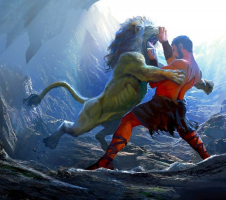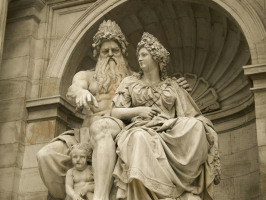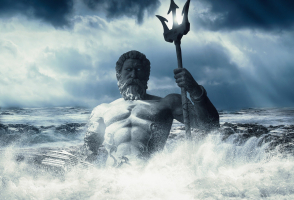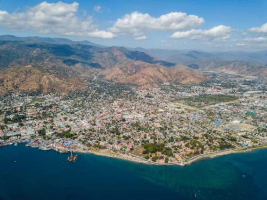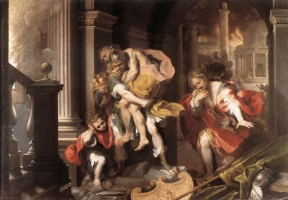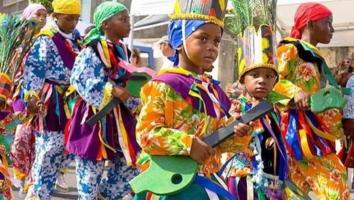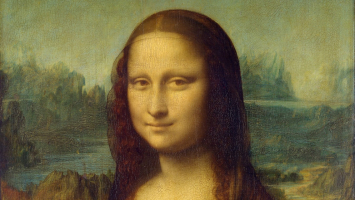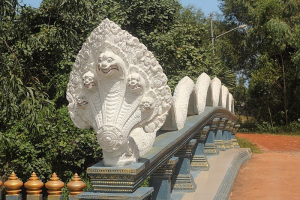Top 10 Most Famous Myths and Legends
There are a lot of famous myths and legends around the world. Their colorful characters and enthralling plot twists have become the childhood of many people. ... read more...Let's revisit some of them with Toplist today!
-
Odin was the Aesir tribe's monarch and the deity of battle and earth, as well as the god of the sky, knowledge, poetry, and magic. He was a shamanic enthusiast of ecstasy and trance, and often 'effeminate' to humiliate the Viking fighters who favored their manly side. His solitary, piercing eye is among the most distinctive features of his look. His other eye hole is devoid of an eye — the eye it previously contained was sacrificed in the sake of obtaining wisdom. He relinquished it in order to drink from the Spring of Enlightenment.
.
On another time, Odin hung from the tree Yggdrasil for 9 days and nights, taking no sustenance from his friends and dedicating himself to himself, until he recognized the runes, the ancient Germanic alphabet believed to hold many of existence's deepest mysteries. Odin often emerges as the head of the Wild Hunting, the winter sky's ghostly march of the dead. He travels on an eight-legged horse and is accompanied by a crow and a wolf, which provide him with knowledge on what is occurring in every part of the planet.
.
Origin: Mythology of the Norse
Other name of the tale: Odin’s Quest for Wisdom
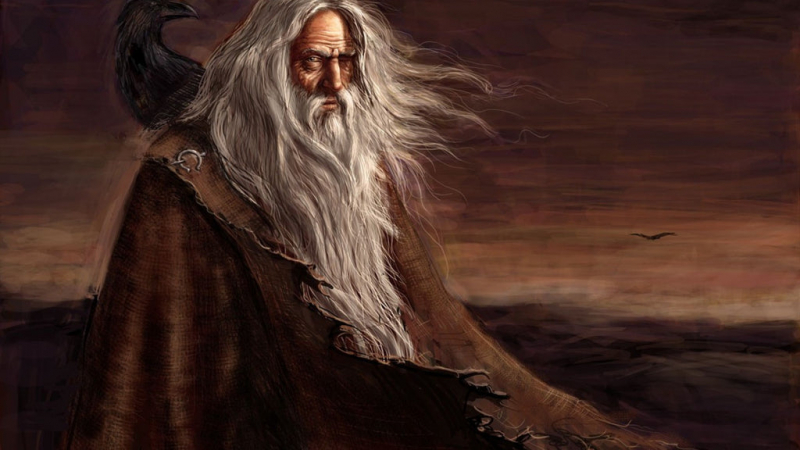
Source: BaviPower 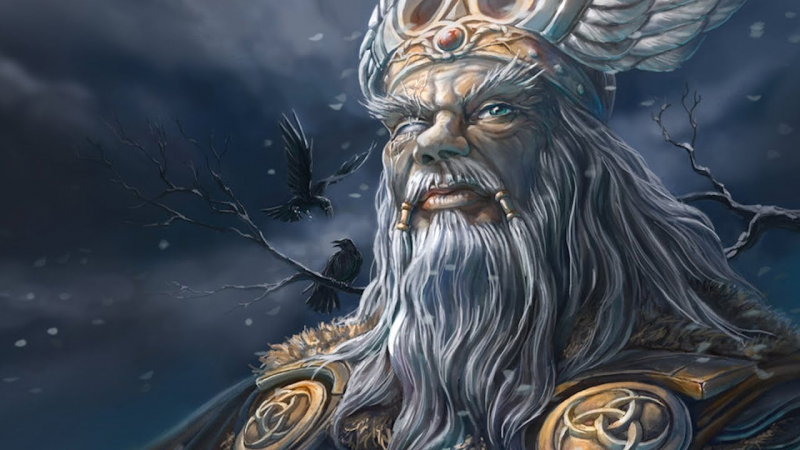
Source: Youtube, The Exploring Series -
Anansi, in his spider form, allegedly sought to store all of the world's learning in a jar for himself. When he was successful, he sought to conceal the pot in the top of the tree, out of sight. He secured the jar in front of him, then attempted to climb that tree, but slipped and lost his grasp.
.
His son, the one who had accompanied him, recommended he strap the jar to his back to facilitate climbing. When Anansi attempted to carry out his son's idea, the jar tumbled to the ground. The knowledge dropped out, and a violent rainfall carried it into the stream and then into the ocean, where it is now owned by everyone on the planet.
.
Anansi was a highly intelligent but naughty (troublesome) deity who was transformed into a black spider by his dad Nyame for refusing to give up his wicked ways. Anansi tales are often amusing and teach us valuable lessons about the repercussions of poor decisions and that it would be better to be wise than powerful.
.
Origin: Mythology of West Africa
Other name of the tale: The Spider Trickster
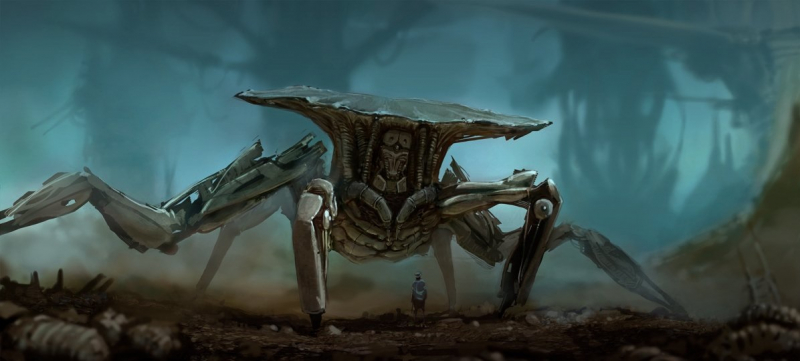
Source: Hub City Blues 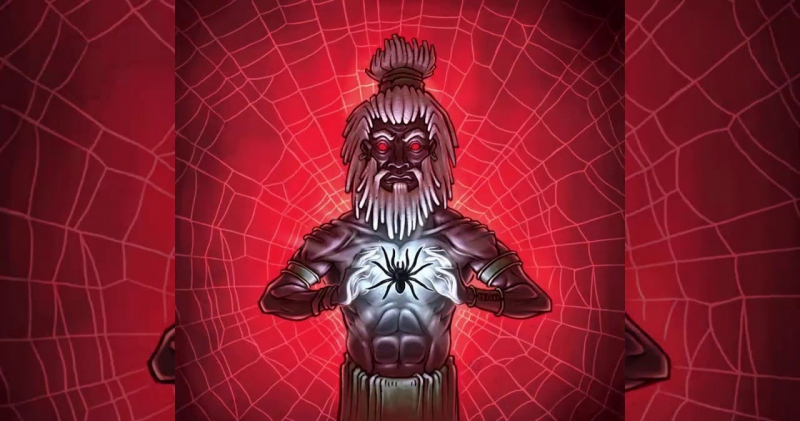
Source: Youtube, History with No Chaser -
All of the Olympian gods - save for Eris, the queen of discord - were invited to Peleus and Thetis' wedding. Eris became enraged and resolved to teach the gathering Olympians a lesson. She tossed a golden apple among them, etched with the words 'For the most lovely.'
.
Three goddesses - Athena, the goddess of wisdom, Hera, the goddess of the home, and Aphrodite, the female god of beauty – each seized the apple and battled over it. None of the gods, even Zeus, dared to decide which of the three women was the most attractive and so deserving of the apple. Finally, the deities were instructed to find Paris, the prince of Troy, who was renowned for his appreciation of feminine beauty and his ability to provide impartial judgments.
.
The three goddesses approached Paris and attempted to wow him with their charms. When he was unable to decide, each attempted to bribe him in private. Hera pledged to make him lord of the world's largest kingdom. Athena vowed to make Paris the world's most respected warrior. Aphrodite promised him Helen, the world's most beautiful lady, as a bride. Aphrodite's offer was accepted by Paris. He handed her the fruit, earning him and the country of Troy the eternal hate of Hera and Athena. Thus, the Trojan War is precipitated not by human stupidity but by the gods' pettiness.
.
Origin: Mythology of Greece
Other name of the tale: Judgment of Paris

Source: Flower Delivery 
Source: How Stuff Works Play -
Two sisters were rivals: Inanna governed the earth, the realm of the living, while Ereshkigal dominated the underworld, the country of the dead. Inanna chose to pay a visit to the underworld. She informed the underworld's gatekeeper of her desire to attend her brother-in-law's burial ceremonies. However, she may have desired to dominate the underworld. Inanna directed her servant Ninshubur to beg the deities to rescue her if something went wrong, and she dressed extravagantly for the visit. Her improper attire for a burial, along with her arrogant demeanor, made the empress of the underworld wary.
.
The gatekeeper, following Ereshkigal's directions, informed Inanna that she may enter the first entrance of the abyss, but she would have to surrender an item of clothing. She inquired as to why and was informed, 'It is just the nature of the Underworld.' She compiled. Inanna traveled through 7 gates in total , each one requiring her to remove one article of clothing or jewelry she was donning at the outset of her trip. When she approached her sister, Inanna was completely nude and defenseless. Ereshkigal dismembered Inanna and hanged her on a pole. After three days and nights, Ninshubur followed orders and traveled to the temples of Enlil, Nanna, and Enki, pleading with them to preserve the god of life, love, and living. The first two deities refused to assist, claiming it was Enki's fault, but Enki was profoundly upset and consented. He fashioned two asexual creatures. He directed them to please Ereshkigal and, once she inquired about their desires, to request Inanna's body and shower it with the foods and drinks of life. As Enki predicted, the two sexless entities were able to resurrect Inanna. However, Ereshkigal's demons accompanied Inanna out from the abyss and informed her that she was not allowed to go until somebody took her place. They approached Ninshubur first and requested that she take Inanna's place. Inanna declined, stating that she had assisted her as she requested.
.
They were then confronted by Dumuzi, Inanna's husband. He was having a good time despite the fact that his wife was allegedly still lost in the underground. Inanna expressed her displeasure and said that the demons may have him. Dumuzi attempted to flee his doom, but a fly informed Inanna and the devils of his whereabouts. Dumuzi would then spend six months with Ereshkigal inside the abyss and the remainder with Inanna.
.
Origin: Mythology of the Sumerians
Other name of the tale: Inanna’s Descent
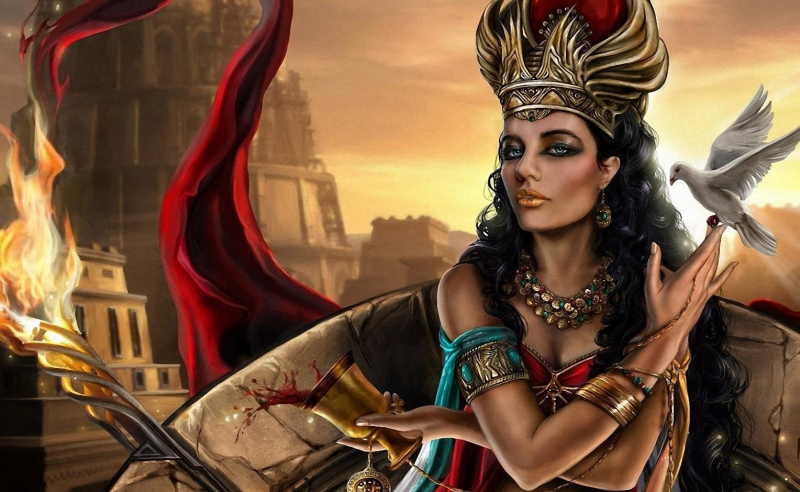
Source: teahub.io 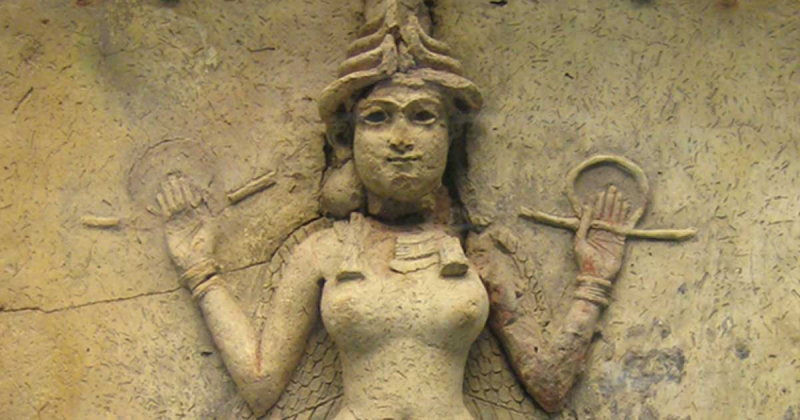
Source: Ancient Origins -
Izanagi and Izanami, the original human pair, were responsible for spewing forth islands from the sea, which they inhabited with their progeny, the many deities who roam the Japanese countryside. Izanami died while carrying the fire-god, and Izanagi was just so sad that he was adamant on resurrecting her. As a result, he traveled to Yomi, the gloomy region of death, in order to retrieve his wife. Unfortunately, Izanami had consumed Yomi's meal and therefore could not return.
.
Izanagi, yearning to see his wife, ignited a lamp. He discovered, to his dismay, that her once-beautiful corpse had deteriorated and was covered in maggots. He fled the underworld in dread, pursued by Izanami, who longed for her husband's return. Izanagi eventually arrived on earth and blocked the underworld's entrance with a massive rock. "I will slaughter a thousand live animals each day," his enraged wife said. "Then I will produce 1,500 new lives each day," Izanagi said. Thus, the narrative concludes with lifelong estrangement and hate.
.
Origin: Mythology of Japan
The name of the tale: The story of Izanagi and Izanami

Source: Youtube, See U in History/ Mythology 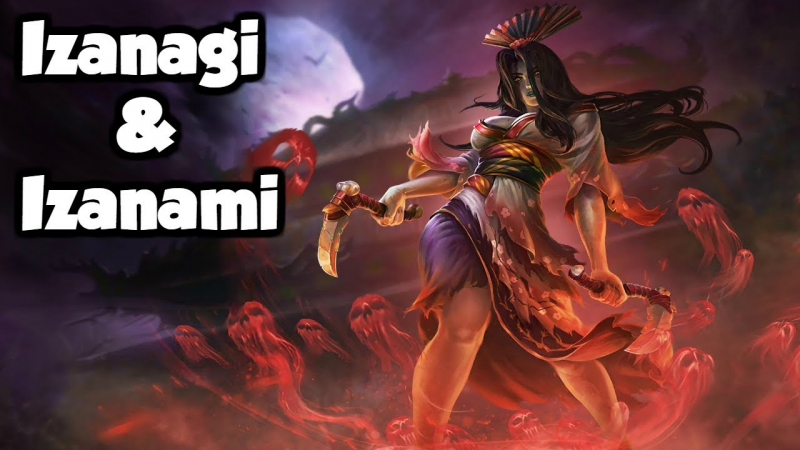
Source: Youtube, Mythology and Fiction Explained -
In six days, God created the universe from nothingness and slept on the 7th day. He made Adam in his own likeness and Eve from Adam's rib. He instructed Adam and Eve to explore the magnificent garden of Eden but to refrain from eating the apple of the Tree of Wisdom. That was the Fruit of the Forbidden Tree!
.
Adam and Eve obediently followed God, but the Demon, disguised as a snake, captivated Eve and convinced her to eat the Forbidden Fruit. She then encouraged Adam to consume it as well. Suddenly, innocence was snatched away. Humans were conscious of their nudity and attempted to conceal it. God was dissatisfied with his creatures and expelled them from Eden for this first act of disobedience, original sin. He also ordered that women would be accountable to men and that the offspring of Adam and Eve – the whole mankind – would bear the consequences of their transgression.
.
Numerous Jewish, Christian, and Islamic schools of thought dispute on certain specifics of this tale. In Jewish folklore, the fruit is referred to as a pomegranate. In Christian legend, it is referred to as an apple. It is the banana in Arabic tradition, since they connected India with her silks and spices with the Garden of Eden.
.
Origin: Mythology of Abraham
Other name of the tale: Adam and Eve in the Garden of Eden
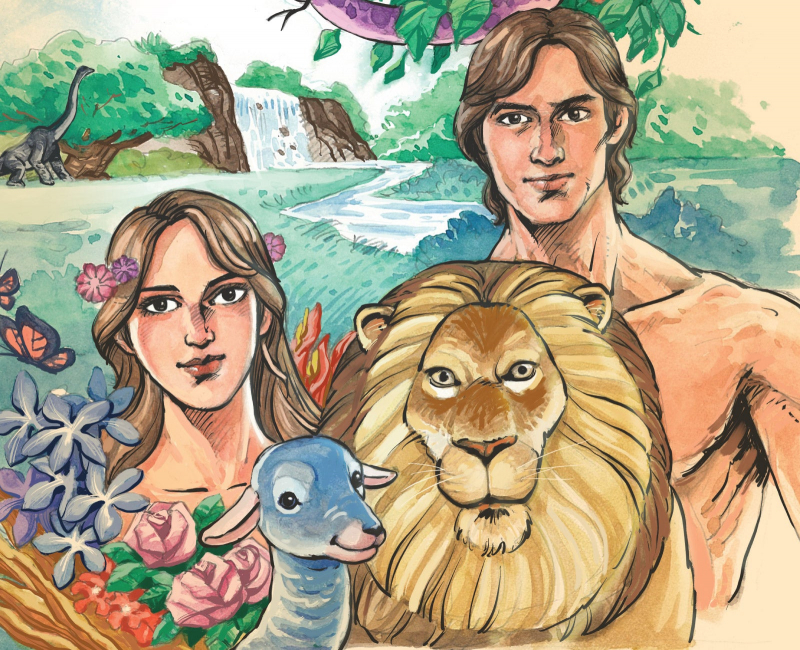
Source: Adventum 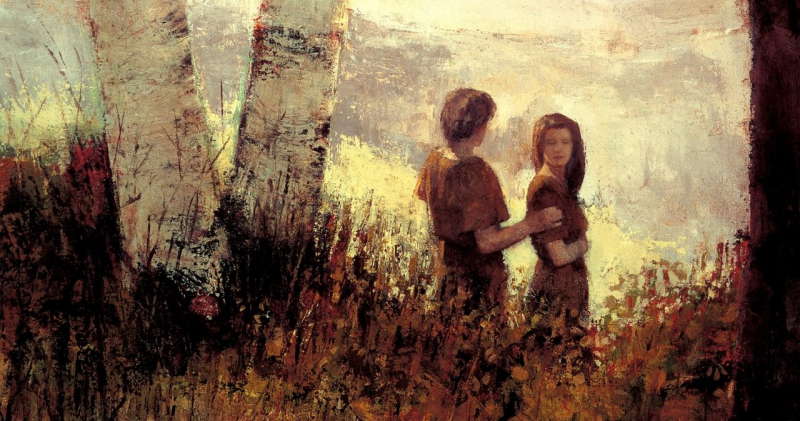
Source: Church of Jesus Christ -
Maui was Tauranga's sixth child. According to some, he was born dead; according to others, since he was born premature, he was considered a bearer of ill luck. As a result, his mother tossed him into the water, wrapped in a strand of her top-knot hair. Ocean spirits discovered the infant, resurrected him, covered him in seaweed, and gave him to Rangi, the sky-father. Rangi transported him to the heavenly regions and nurtured him till puberty.
.
Maui discovered his mother's hair one day and, upon recognizing it, decided to come down from his foster father's heavenly kingdom and look for her in the land of humans. However, he was often out of step in both his mother's, Tauranga's, and adoptive father's, Rangi's, worlds. Maui saw that the days on the earth are much too short to complete the task at hand.
He tied the sun in a rope and beat him mercilessly with a jaw-bone stick until he vowed to move slower in the future.
.
Maui then dragged out a massive island that lay under the water in the shape of a fish, having his own blood as bait. Maui went in search of a priest to execute the necessary rites and prayers, leaving the fish in the care of his brothers. They did not stay for Maui's return and immediately started cutting up the fish, which began writhing in anguish and disintegrating into hills, cliffs, and valleys. If the siblings had done what Maui said, the island would've been a flat plain with easy transit.
.
Origin: Mythology of Polynesia
Other name of the tale: The Legend of Maui
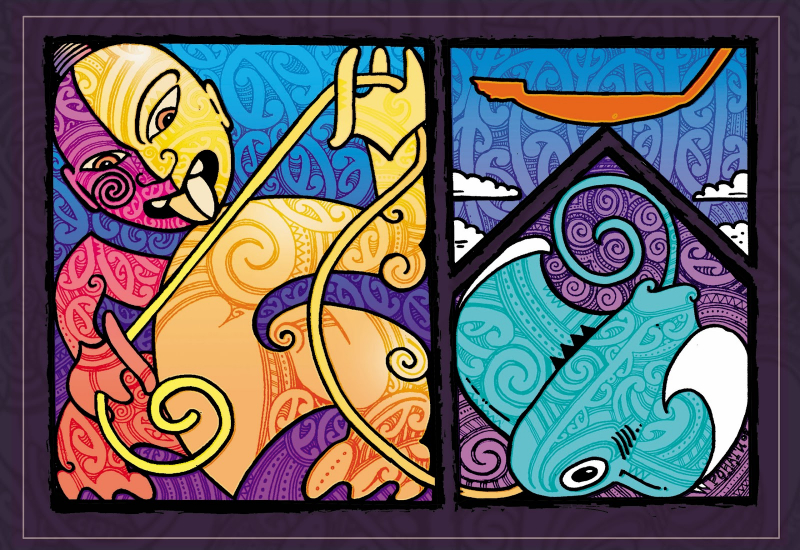
Source: Warren Pohatu Creative 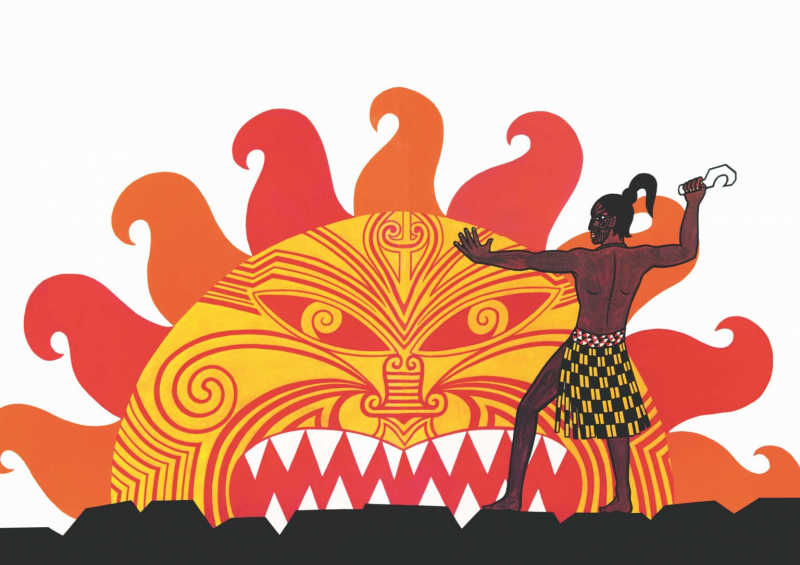
Source: gossage.co.nz -
In the beginning, the world was nothing but Nu waters, from which the first pyramid-like berm emerged, much like the earth that shows up when the Nile's waters recede. On this mound, Atum gave birth to the deity of the air Shu and the divinity of dampness Tefnut, who in turn gave gave birth to Geb, the god of earth, and Nut, the goddess of sky, who gave birth to Isis and Osiris, the first king and queen of human civilization, respectively. Atum is occasionally referred to as masculine due to the fact that he masturbates in order to generate his females and males children.
.
However, he is also known as 'the Great He-She,' a reference to the genderless nature of life prior to the emergence of the two sexes. Osiris became the first ruler of the River Nile and created a large empire, but his brother, the ruler of the desert, got envious of him and summoned him to a banquet, followed by the presentation of a box. 'Is the box the same size as you or larger?' Seth inquired innocuously. Seth asked Osiris to lie down in that box and confirm. Osiris entered the box without a second thought. Seth shut the casket immediately and buried Osiris. He then dismembered his corpse and tossed it into the Nile.
.
Isis scoured the lands for fragments of her husband and reassembled them. She then turned to her magical abilities to revive her spouse long enough for him to offer her a child, whom she named Horus, Osiris' true heir. Horus, on the other hand, had to fight numerous battles to demonstrate his superiority over Seth.
.
Origin: Mythology of Egypt
Other name of the tale: Osiris Myths
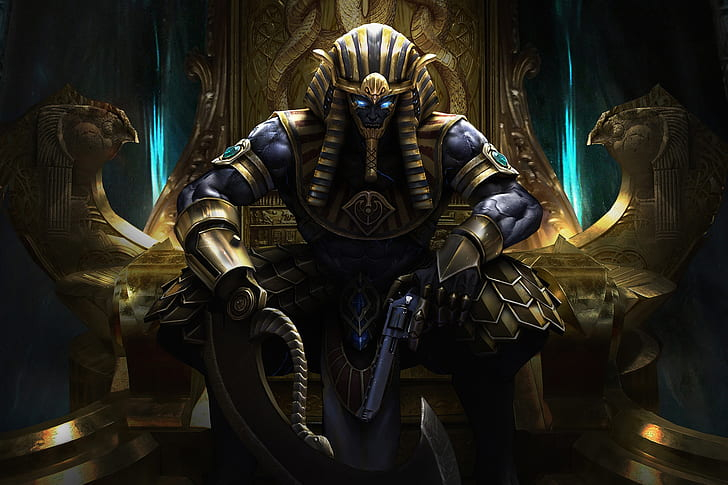
Source: Wallpaper Flare 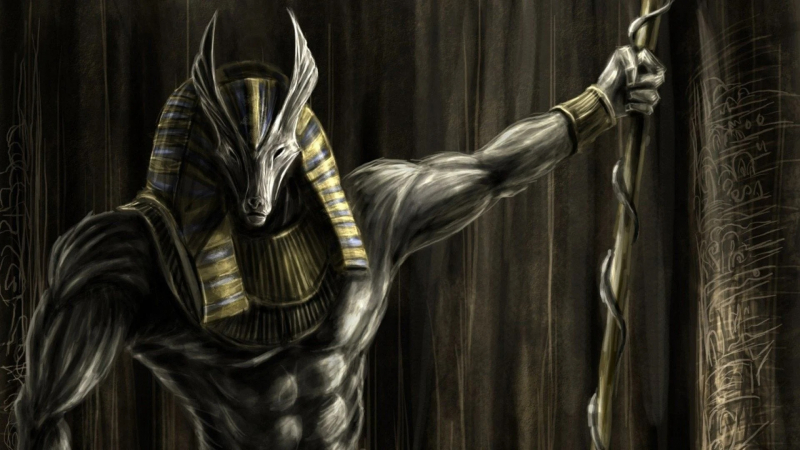
Source: Wallpaper Access -
Sedna was a lovely young lady whose dad, a widower, was continually attempting to marry her away, but she refused. She continued to turn down her countless admirers. One day, a marine bird assured her that he would whisk her off to his "pleasant, magnificent" abode. The young lady eloped with the bird, but their "pleasant, magnificent" abode turned out to be a dirty, stinky nest.
.
To compound problems, her fiancé treated her as if she were a slave. Sedna pleaded with her dad to come and get her, and he obliged. However, as they made their way across the waves, a group of sea birds encircled the boat. Their constant beating of their wings created a massive storm, which thrashed their little craft from side to side. Sedna's father, fearful for his own life, flung her into the water to satisfy the furious birds.
.
When Sedna attempted to re-enter the boat, he severed her fingers. He severed her hands and flung her and her limbs into the sea as she attempted to use her damaged hands to attempt again. Her fragmented parts evolved into fishes, seals, whales, and all other marine creatures as she plummeted to the depth of the ocean.
.
Origin: Mythology of the Inuit/Eskimo
Other name of the tale: The Legend of Sedna
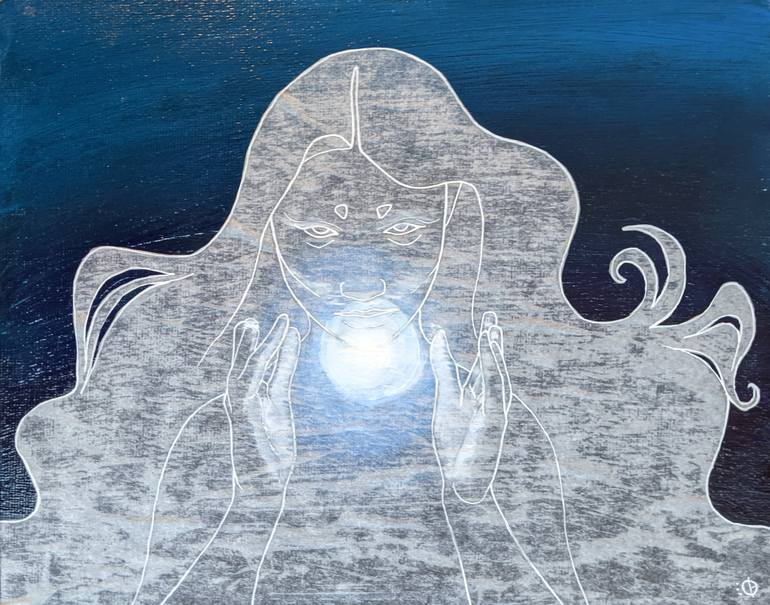
Source: Saatchi Art 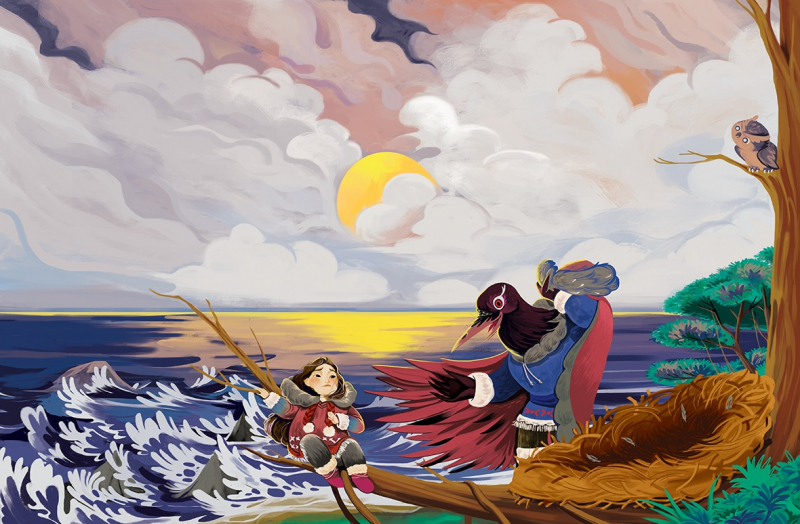
Source: Behance -
Tiamat was the great-great mother of the gods; she bore all her offspring inside her body. Everything was fine until the children created such a racket that the ancient gods demanded the new gods' annihilation. Tiamat cautioned her children the very first time this occurred. When this occurred a second time, Tiamat sent her consort to annihilate the new gods.
.
The new gods united behind Marduk, who vanquished Tiamat and her consort, as well as all the ancient gods that stood with them, after a bloody battle. Marduk formed the earth underneath and the heavens above from Tiamat's body. Tiamat's tears formed the Tigris and Euphrates rivers.
.
Humankind was born when her consort's blood was combined with the crimson soil. As the offspring of the ancient gods, mankind was compelled to serve the heavenly beings in perpetuity. Inaction toward the new gods resulted in floods and storms. The Enuma Elish recounts this story.
.
Origin: Mythology of Babylonia
Other name of the tale: Marduk of Babylon
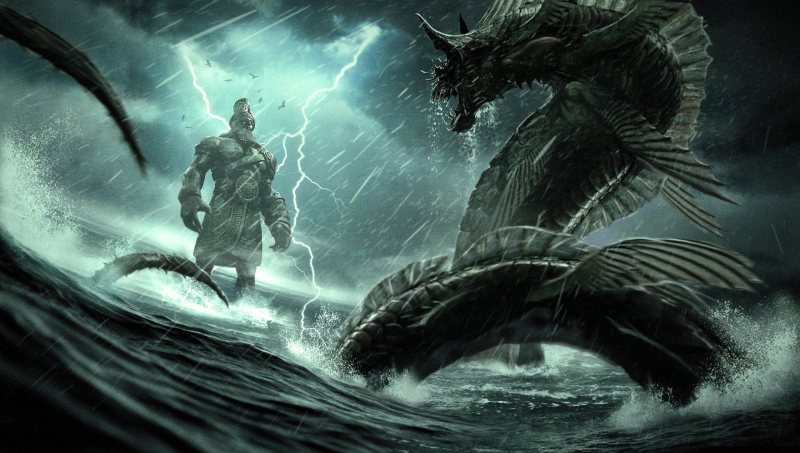
Source: Reddit 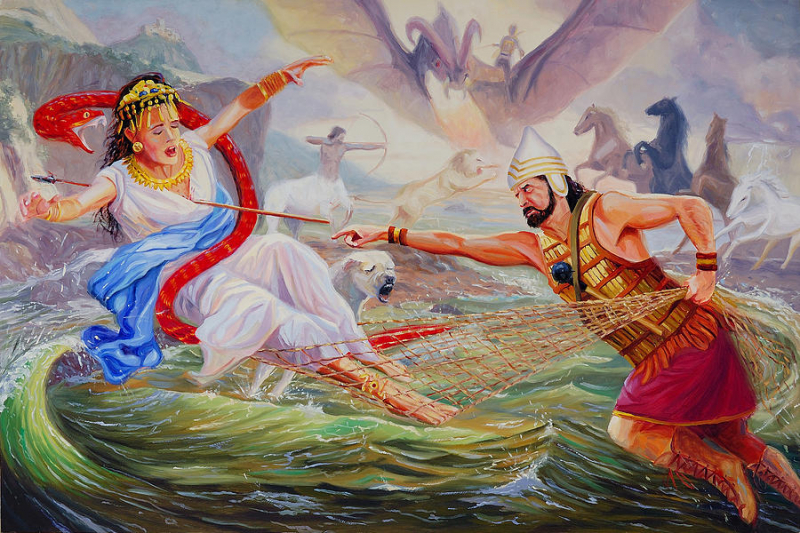
Source: pixels.com












